Coronavirus government response updates: Trump, task force say mitigation is working
Trump and experts have warned parts of the nation to prepare for peak deaths.
Members of the coronavirus task force have warned Americans to brace for dark days ahead.
After the surgeon general likened the coming weeks to Pearl Harbor and the Sept. 11 terror attacks, and as the nation's top doctors cautioned against even going to grocery store or pharmacy unless absolutely necessary, President Donald Trump on Sunday clung to an optimistic tone, telling Americans there will be "light at the end of the tunnel" and reviving his phrase that "the cure can't be worse than the problem itself."
On Monday morning, the president's top trade adviser turned Defense Production Act policy coordinator Peter Navarro doubled down on his defense of an anti-malarial drug to treat COVID-19, after Axios reported Navarro lashed out at infectious disease expert Dr. Anthony Fauci over the drug's efficiency this weekend.
While Fauci has been publicly skeptical of hydroxychloroquine to treat COVID-19, citing a lack of scientific evidence at this stage, Trump spent much of Sunday's briefing telling Americans they have little to lose by trying the drug and even appeared to block Fauci from answering a question about it.
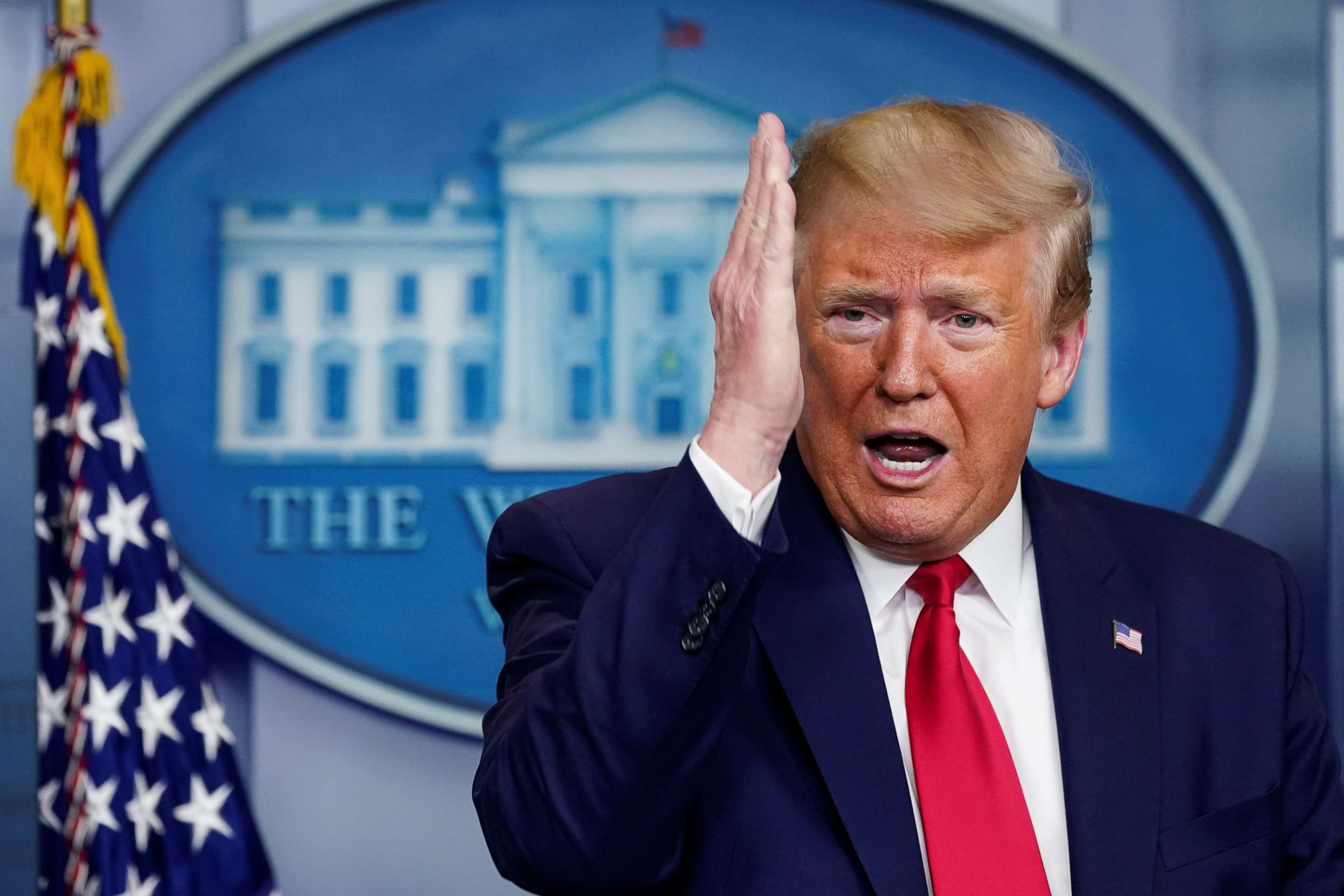
Tune into ABC at 1 p.m. ET and ABC News Live at 4 p.m. ET every weekday for special coverage of the novel coronavirus with the full ABC News team, including the latest news, context and analysis.
Related Stories
Here are Monday's most significant developments in Washington:
- Surgeon General: This week will be like a 'Pearl Harbor' and '9/11' moment
- Birx: 'This is the moment to not be going to the grocery store, not going to the pharmacy'
- Fauci to CBS: 'I will not say we have it under control... We are struggling to get it under control'
- Trump 'saddened' that 'good friend' Boris Johnson in hospital
- CDC now recommends wearing cloth face coverings or non-medical masks in public
Here are the latest developments in the government response:
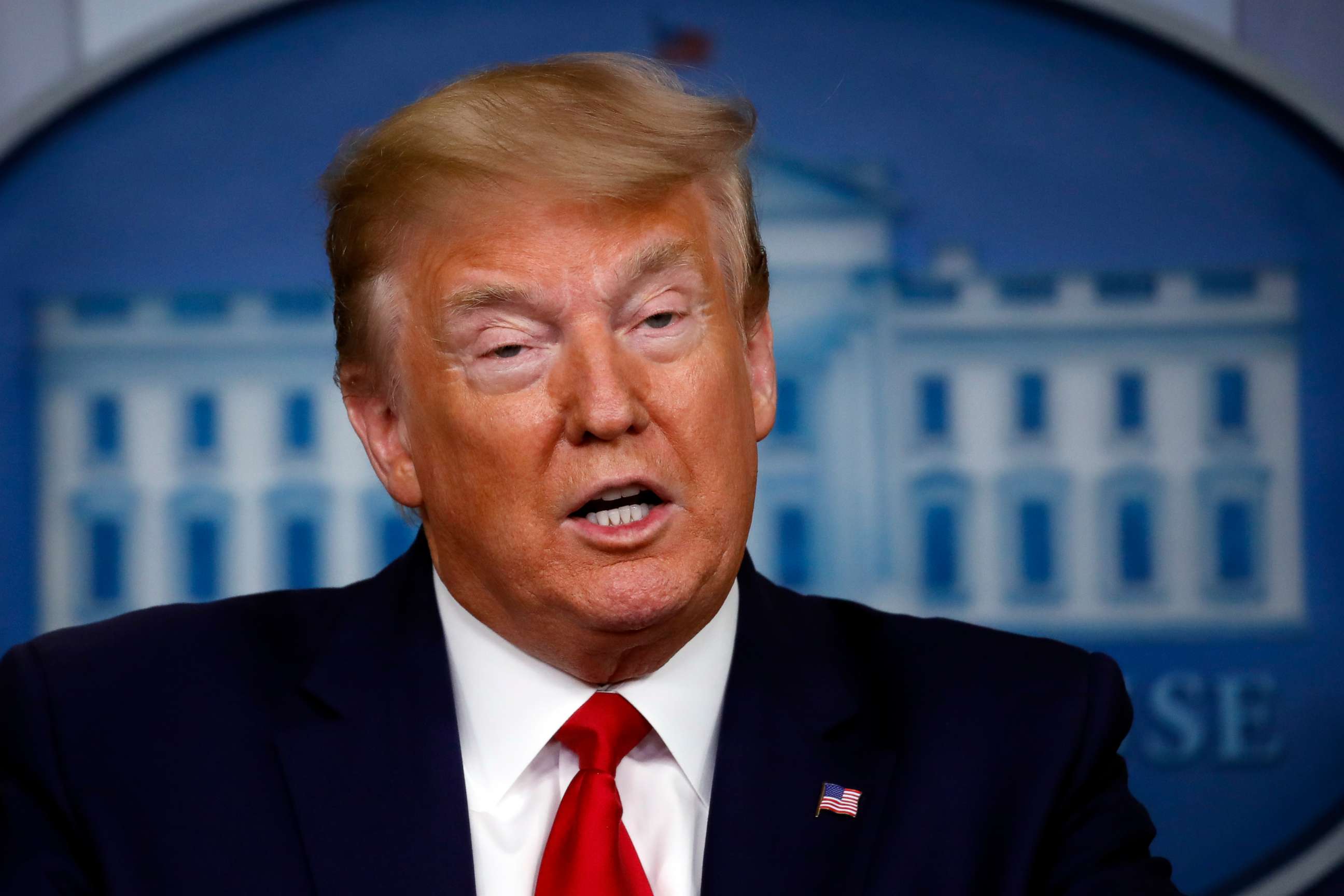
Trump 'saddened' that 'good friend' Boris Johnson admitted to hospital
President Trump began the daily coronavirus task force briefing by offering well wishes to British Prime Minister Boris Johnson, who has been admitted to an intensive care unit in England after suffering persistent coronavirus symptoms. He tested positive for the disease about ten days ago.
"I also want to send best wishes to a very good friend of mine, and a friend to our nation, Prime Minister Boris Johnson. We are very saddened to hear that he was taken into intensive care this afternoon, a little while ago. And Americans are all praying for his recovery. He’s been a really good friend. He’s been really something very special, very strong -- resolute, he doesn’t quit, doesn’t give up," Trump said.
He repeated his advice to Americans to practice social distancing to help stop the spread of the virus.
"Stay inside. Let's win this and let's get our country open as soon as we can. I think it's going to be sooner than people think," Trump said. "Again, light at the end of the tunnel."
He confirmed what New York Andrew Cuomo said earlier Monday -- that the USNS Comfort will now be used to treat COVID-19 patients from New York and New Jersey, after initially being dispatched as an overflow hospital for non-COVID patients.
“He (Cuomo) called me up a little while ago, and he asked whether it would be possible to use the ship with respect to fighting the virus. And we hadn’t had that in mind at all, but we are going to let him do it,” Trump said, as the death toll in New York neared 5,000.
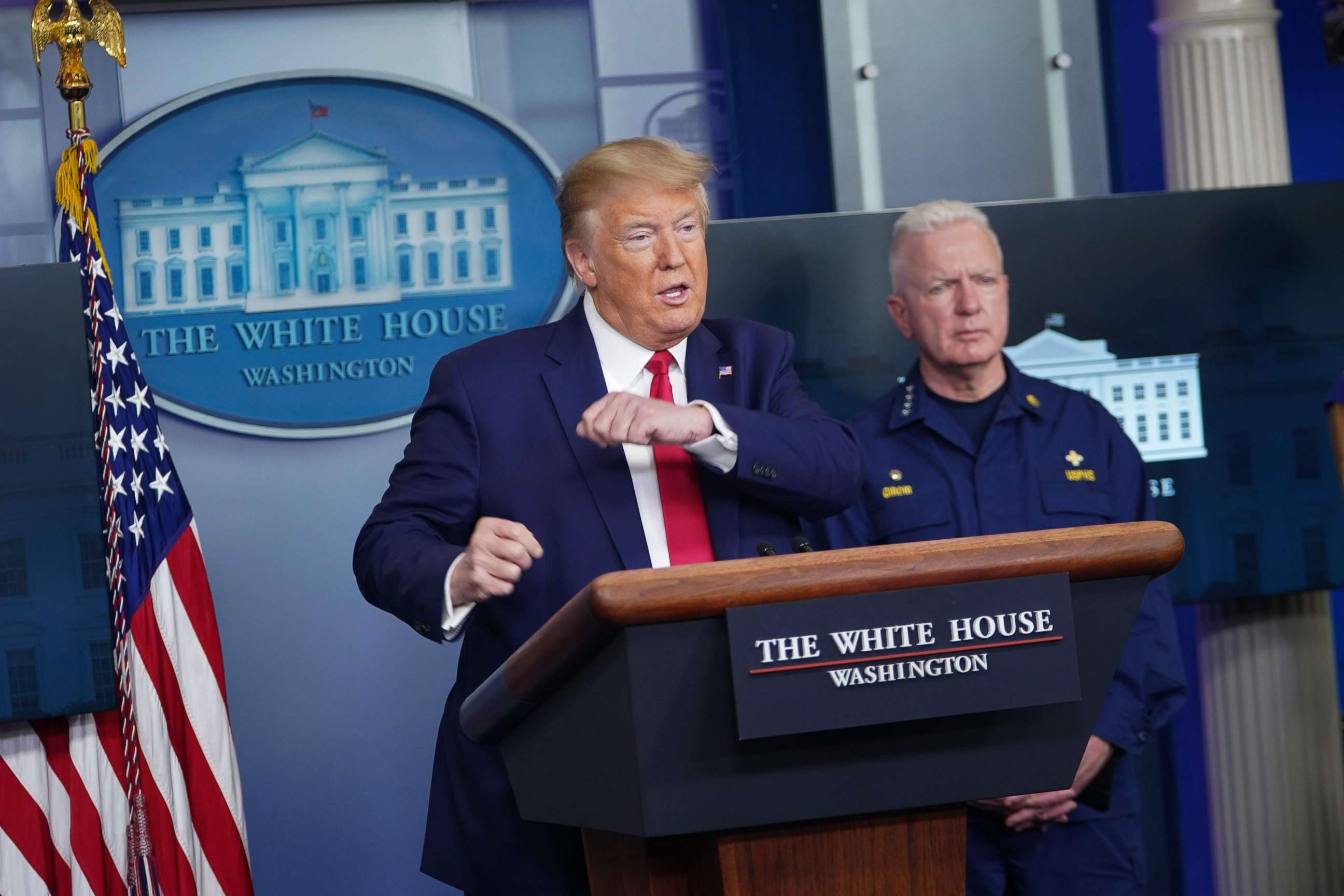
Trump said all 50 governors were on a call with the coronavirus task force today, and there was not a single “negative” person about the federal government's response and that everyone was "happy."
When Trump asked Pence to confirm, and he did, Trump said, "See? I told you. Mike is the greatest."
"Even Governor Pritzker from Illinois is happy," Trump insisted, after the Democratic governor has publicly criticized aspects of the administration's response and called on Trump to greater utilize the powers of the Defense Production Act to assist states. "He may not be happy when he talked to the press, but he's happy."
The president became increasingly irritated with reporters asking about the HHS inspector general's report which documented several shortages in supplies in 323 hospitals across the country between March 23 and March 27.
The president also confirmed he spoke with former Vice President Joe Biden “a few minutes” before the briefing for “probably fifteen minutes" -- hours after the president criticized his Biden on Twitter and days after he said he would “absolutely” take a call from his Democratic rival.
“We had a really wonderful, warm conversation. It was a very nice conversation. We talked about pretty much this,” Trump said, referring to the coronavirus crisis. “And he gave me his point of view, and I fully understood that... I appreciate his calling.”
The call, which Trump called "very friendly," marked a rare conversation between the incumbent president and his likely Democratic challenger.
Asked if it was appropriate for acting Navy Secretary Thomas Modly to tell the crew of the carrier USS Theodore Roosevelt that fired Capt. Brett Crozier was too naïve or too stupid to be in command, President Trump said he had not heard what Modly said “exactly” but called it a “strong statement” and described Modly’s handling of the Crozier situation as an “argument” between “two people.”
He noted that the letter from Crozier saying the Navy needed to do more to protect his sailors “shouldn’t have been sent and certainly they shouldn’t have been leaked.”
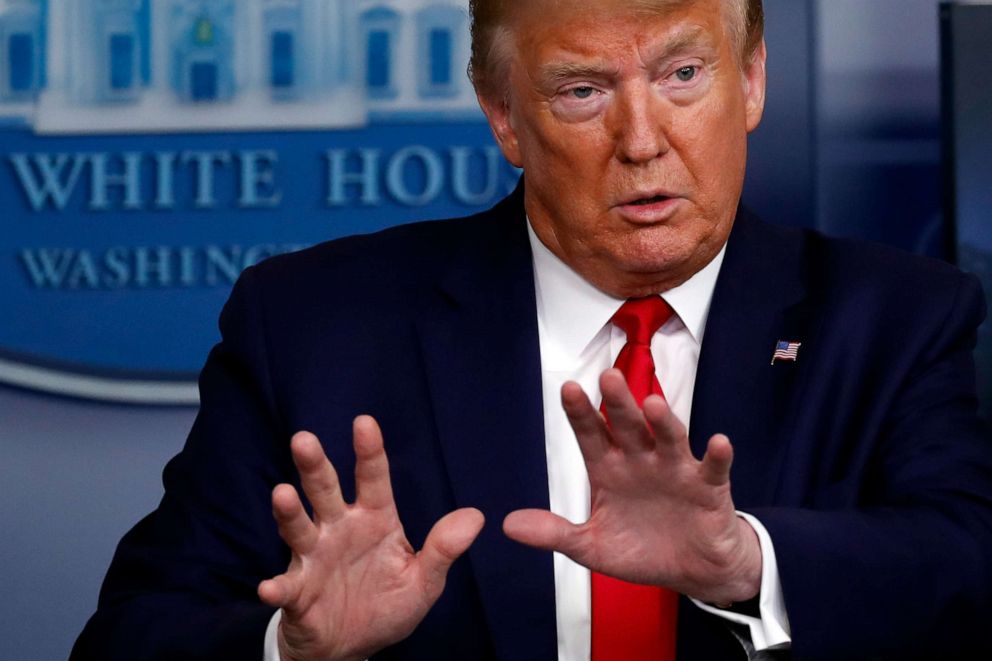
“We don't need to have letter-writing campaigns where the fake news finds a letter and gets a leak. We don't want that. So the letter shouldn't have been sent. With all of that said, his career prior to that was very good. So I'm going to get involved and see exactly what’s going on there,” the president said.
He said that he’s “heard very good things about the gentleman, both gentlemen” and, speaking of Crozier, he said, "I don't want to destroy somebody for having a bad day.”
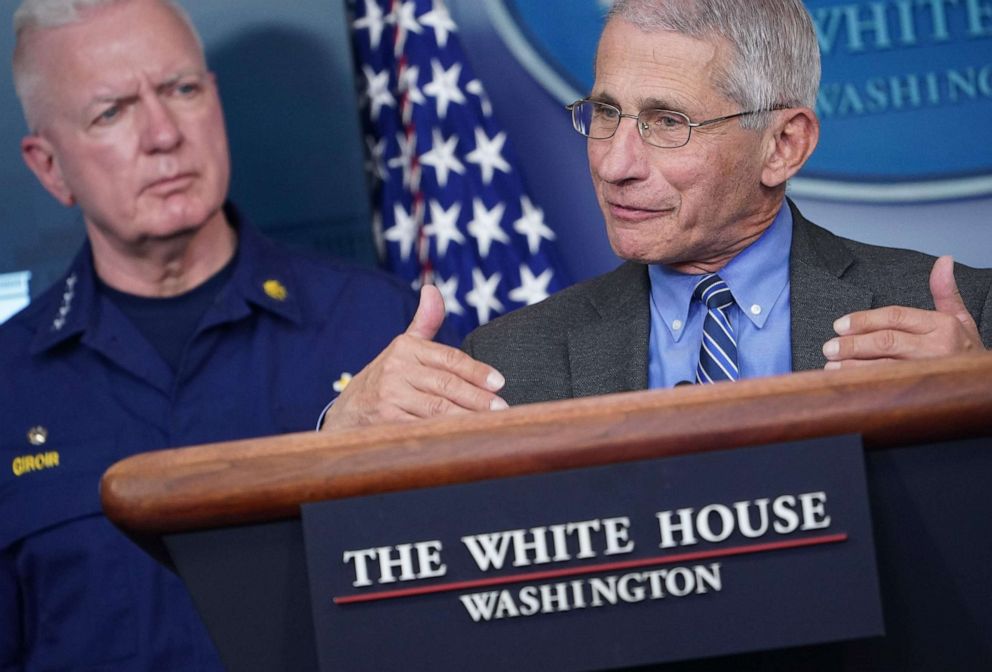
Dr. Anthony Fauci, the nation's top expert on infectious disease and a key member of the coronavirus task force, said getting "back to normal" will likely require a vaccine -- "a situation where you can completely protect the population" -- but warned the a pre-coronavirus world may never happen because "the threat is there."
"Will we truly get back to normal in this country before there's an actual vaccine that's available to everybody?" ABC News Chief White House Correspondent Jonathan Karl asked Fauci.
"I feel confident that, over a period of time, we will get a good vaccine that we will never have to get back to where we are right back now. So, if that means getting back to normal, then we'll get back to normal," Fauci said.
"If back to normal means acting like there never was a coronavirus problem, I don't think that's going to happen until we do have a situation where you can completely protect the population," Fauci said. Currently, the nation is intensely mitigating the disease, Fauci said, and going back to regular societal functions will happen gradually.
But Fauci warned that getting to a "pre-coronavirus" world "might not ever happen in the sense that -- the fact that the threat is there," though he said he feels confident in the vaccine and therapy treatment in the pipeline.
The president seconded Fauci's confidence on therapies and vaccines but also pivoted to the economy, which has been a top priority for Trump as he navigates coronavirus response.
"I think when you add that to it, I think we can get more than back to normal from an economic standpoint. Actually be better. But more than back to normal," Trump said. The president wouldn't comment on lifting restrictions by April 30, but said "we certainly want to try."
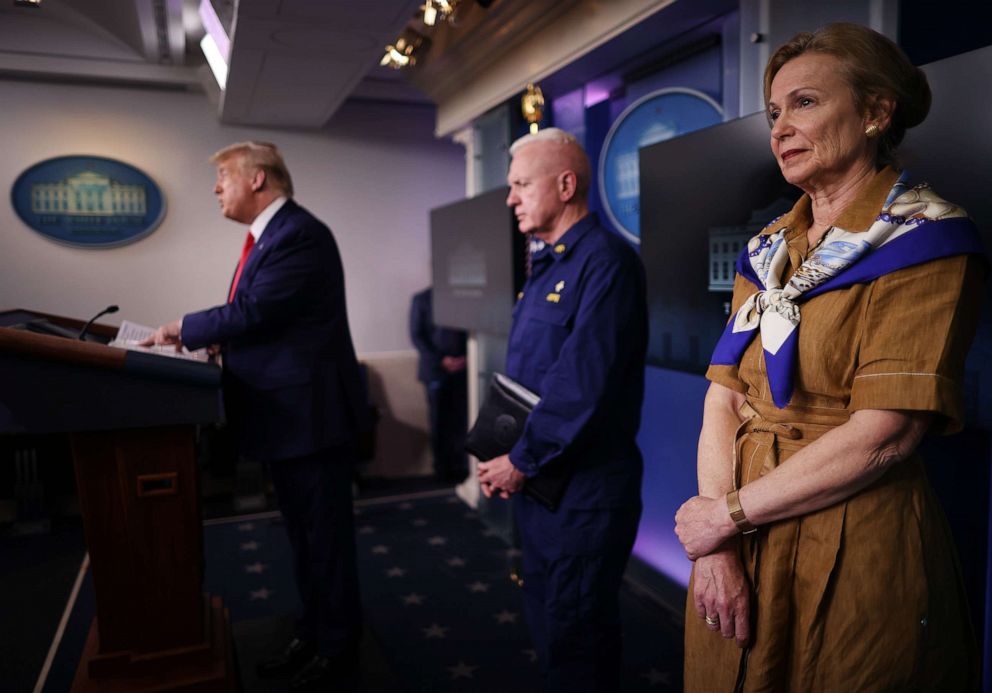
Fauci cautioned about “claiming victory prematurely” but said that models are starting to show that the social distancing is working, calling it “our best and only great public health tool.”
“Governor Cuomo reported that the number of hospitalizations, the number of admissions to intensive care and requirements for intubations over the last three days have actually started to level off,” Fauci said, “so everybody who knows me knows I'm conservative about making projections -- but those are the kind of good signs that you look for."
“That's the first thing you see when you start to see the turnaround,” he said.
While always noting there’s still work to do, Fauci reminded Americans that “despite all the suffering and the death that has occurred, what we have been doing has been working.”
He acknowledged that social distancing for an extended period is largely unnatural but said that he was “cautiously optimistic” with the progress so far.
“I don't think anyone has ever mitigated the way I'm seeing people mitigate right now,” he said.
Seeking to clarify advice she gave over the weekend, Dr. Deborah Birx, the White House task force coordinator, suggested that Americans in hot spot areas skip their trips to the pharmacy or grocery store at the height of the crisis and instead go once every two weeks, shopping for the entire family, so as to reduce their time out and about.
"It was really about, we have to do everything we can," Birx said.
She knows how tough the guidelines can be, she said, because it's personally challenging for her, too.
"Dr. Fauci and I and the admiral have spent our lives taking care of others. We need to take care of each each other now as Americans and do everything that's in those guidelines. I know they're tough. I know incredibly how tough they are. My grandchild of 10 months got a fever of 105 this weekend. I'm a doctor. And I couldn't get there," Birx said.
"I did not go there because of you two. You can't take that kind of risk with the leaders of the country," she said, gesturing to Trump and Pence.
Before introducing Birx, Pence signaled the task force is starting to see a leveling of the curve -- at least in some areas.
“Clearly, what we see in Washington and California and what we are just beginning to see elsewhere, is put into practice the social distancing recommendations of the coronavirus guidelines for America, Pence said.
“We really do believe that, while this will be a week of heartache, it also is a week of hope, as we see some of the cases beginning to level just for a day or two,” he added.
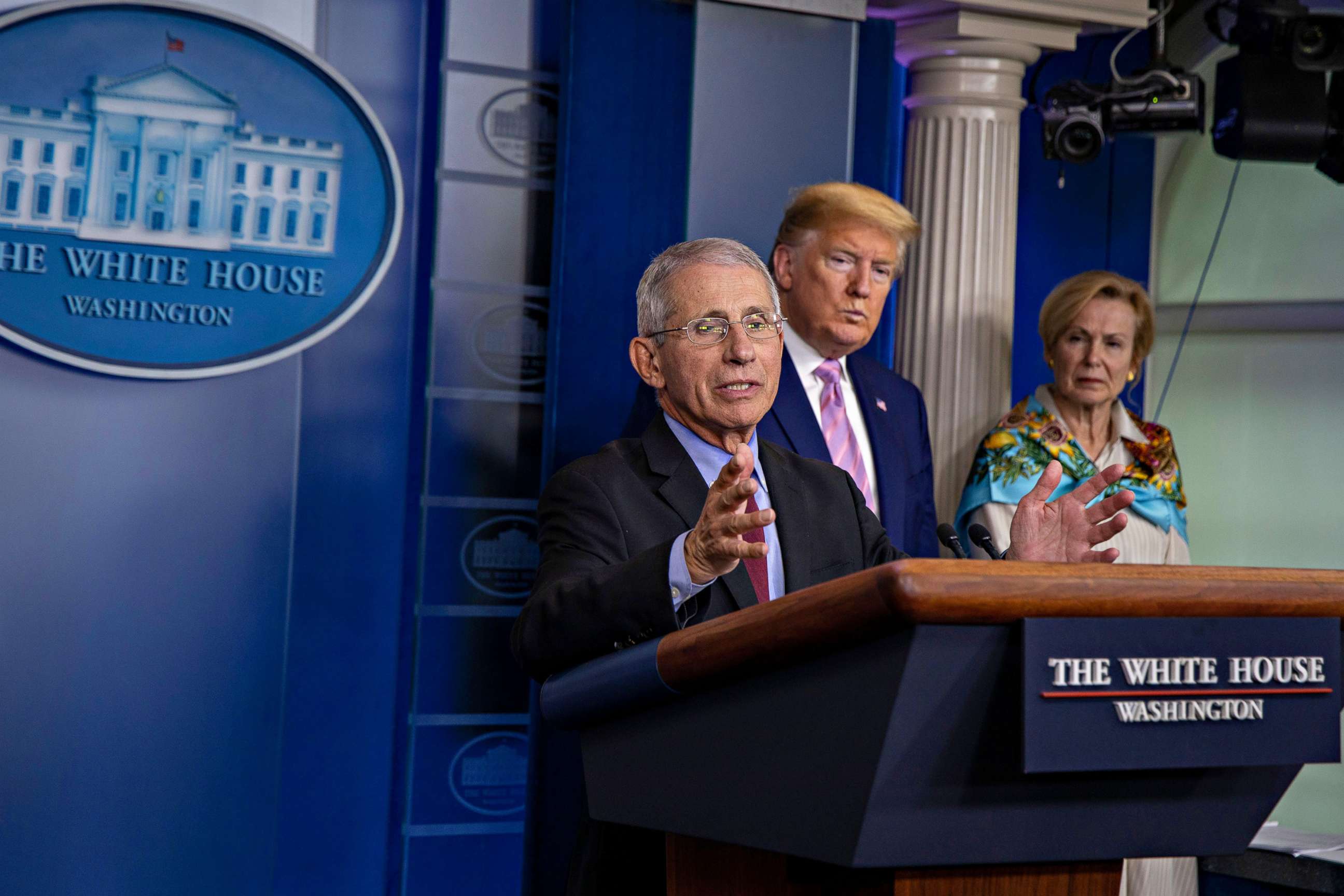
Navarro calls himself a "social scientist" as divide grows between Trump, Fauci over hydroxychloroquine
Calling himself a "social scientist," White House trade adviser and Defense Production Act policy coordinator Peter Navarro argued to CNN this morning that he is qualified to disagree with Dr. Anthony Fauci on the use of hydroxychloroquine as a COVID-19 treatment and defended "the possibility" of its efficiency -- which Fauci has emphasized is not yet proven.
"Doctors disagree about things all the time. My qualifications in terms of looking at the science is that I'm a social scientist," Navarro told CNN's "New Day."
The president's top trade adviser said he was offering a "second opinion," on the drug and primarily referenced a control group study out of Wuhan, China -- done with moderately ill patients and was not double-blind but showed some potential benefits -- adding he had spoken to some doctors who had found it useful. He also claimed some on the frontlines were taking the drug as a prophylactic.
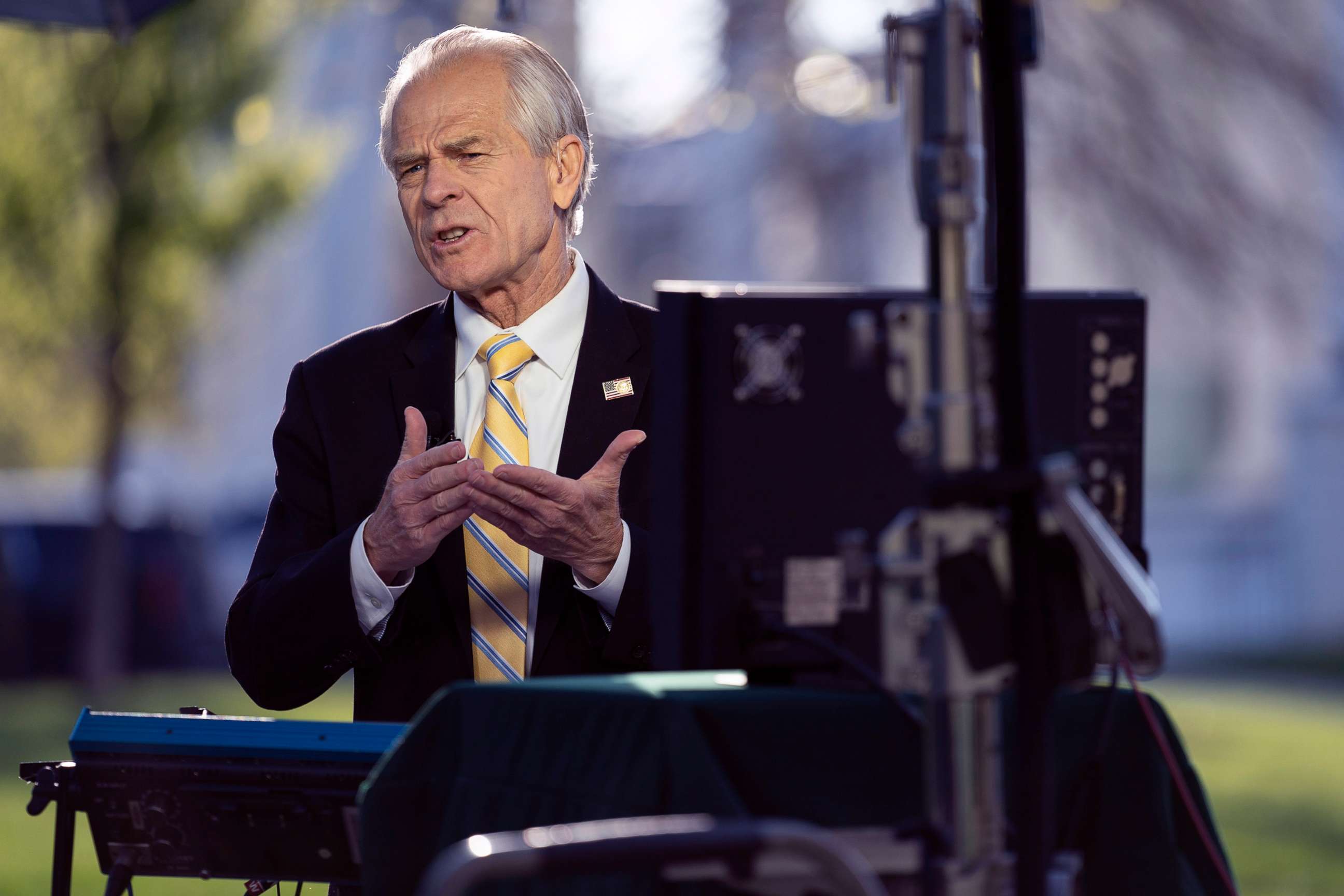
"The issue wasn't about me offering my medical opinion," Navarro said, when asked about Saturday's Situation Room argument first reported by Axios. "The question was whether we should take the 29 million doses in the FEMA storehouses and surge them into the zones, and it was unanimous in that task force meeting to do so. So, that's the only question I posed."
Trump indicated on Sunday that the government is using federal resources to make the drug available, saying, "We have stockpiled 29 million pills of the hydroxychloroquine...And they're not expensive. What do you have to lose?"
Giroir: 'Optimistic' by May there will be tens of millions of antibody tests available to Americans
Adm. Brett Giroir, who is leading COVID-19 testing efforts in the U.S., said he was "very optimistic" that by May there will potentially be tens of millions of blood tests available to Americans to determine if they have already been exposed to the virus.
"I am personally very optimistic that by May we are going to have these in very large quantities with all the needed supplies," he told ABC's "Good Morning America."
Serologic testing, more commonly known as an antibody test, only requires a drop of blood and sniffs out virus antibodies. The test can't detect whether an individual presently has the virus, but it can tell if they already had it or had been exposed to it at some point in the past because their immune system has developed antibodies to fight it.
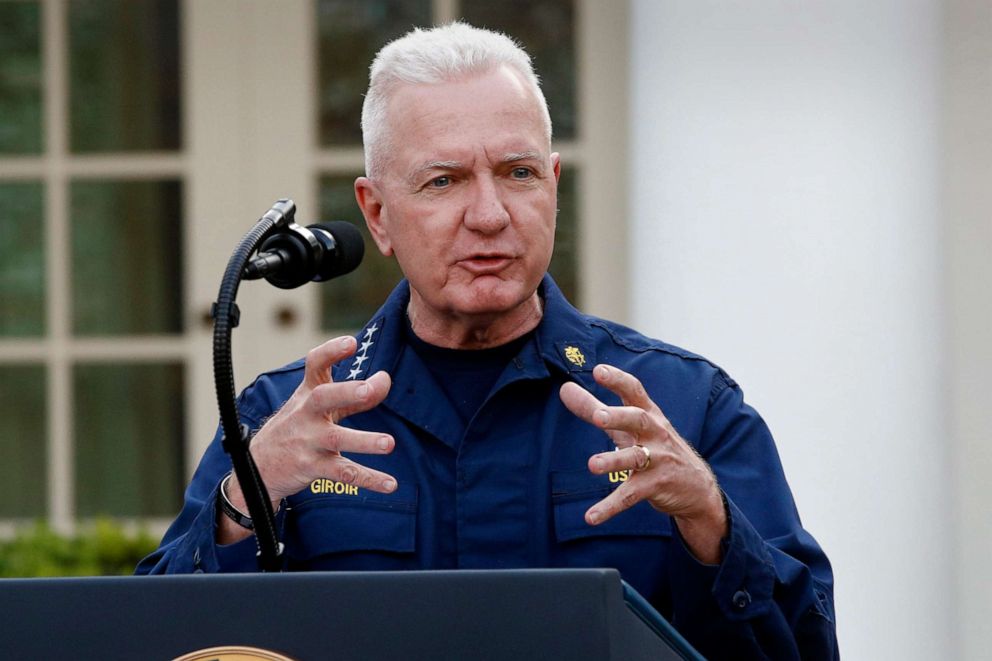
Combined with the other swab test for presence of an active virus, the two tests could provide a way forward, he said, and "There are several that are going through the FDA right now."
"That's really important as we think about re-opening the country and the economy because if you've had the virus and you've had an immune response to it, in all probability you are immune and safe from the virus," Giroir added.
What to know about coronavirus:
- How it started and how to protect yourself: coronavirus explained
- What to do if you have symptoms: coronavirus symptoms
- Tracking the spread in the US and Worldwide: coronavirus map
ABC News' Anne Flaherty, Shannon Crawford and Ben Gittleson contributed to this report.
